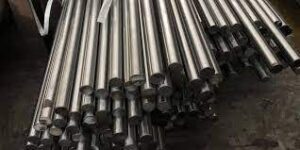Tool Steel‘s Silent Contribution to Medical Advances
 Behind many medical miracles lies an unsung hero – tool steel. This versatile metal helps manufacture scalpels with unparalleled sharpness, durable implants that restore mobility, micro-molds for lifesaving devices, and machinery mass producing millions of sterile components. Without specialty tool steels, many of healthcare’s incredible innovations would remain stalled as ideas rather than reality.
Behind many medical miracles lies an unsung hero – tool steel. This versatile metal helps manufacture scalpels with unparalleled sharpness, durable implants that restore mobility, micro-molds for lifesaving devices, and machinery mass producing millions of sterile components. Without specialty tool steels, many of healthcare’s incredible innovations would remain stalled as ideas rather than reality.
In this article, we’ll explore the silent contribution of tool steels enabling medical progress. Discover how these specialty alloys make possible delicate surgical tools, micro-engineered polymers, implanted prosthetics, and critical equipment mass produced with precision. Tool steel empowers incredible medical breakthroughs happening around us every day.
An Introduction to Medical Tool Steels
Tool steels refer to the family of carbon and alloy steels specially engineered for machining, molding, pressing, and fabrication processes. Their unique properties include:
- Extreme hardness while retaining fracture toughness
- Excellent wear resistance and stability through repeated cycles
- Strength and fatigue limits to withstand heavy loads
- Dimensional precision across millions of impressions
- Corrosion resistance in caustic sterilization chemicals
These attributes make tool steels ideal for producing reliable medical parts in high volumes. Healthcare depends on having robust, consistent equipment and devices. Tool steels enable both intricate precision and mass production.
Crafting Delicate Surgical Instruments
Many lifesaving procedures depend on specialized surgical tools honed from tool steels. The metal’s qualities enable unparalleled sharpness, strength, and precision:
Scalpels and Blades
Surgical cutting requires an incredibly fine, strong edge and smooth finish. Martensitic and precipitation hardening stainless tool steels like 420, 440C, and 17-4PH are ground and honed into scalpels, lancets, surgical knives, and microtome slices with ultimate sharpness. Carefully heat treated and aged tool steel maintains the edge through repeated use and sterilization.
Retractors and Forceps
Retracting and grasping delicate tissues or organs demands smooth, strong instruments. Tool steels provide the needed corrosion resistance and fine grain structure to precision grind thin, curved instruments like forceps, hemostats, retractors, and clamps. Passivated surfaces prevent reactions while retaining precise dimensions.
Scissors and Shears
Cutting sutures or tissues requires tool steel scissor and shear blades holding fine edges. Hot work tool steel provides hardness while allowing intricate machining of the contoured, crossing shear geometry. This enables clean, accurate cuts procedure after procedure.
Thanks to tool steels, surgeons can focus on their critical work knowing their instruments will perform flawlessly each time.
Mass Producing Sterile Components
Many medical supplies and single-use components depend on tool steels for lean, repeatable production. Durable tool steel molds, forming dies, and stamping presses churn out millions of disposable parts:
Injection Molding
Tool steel injection molds repeatedly form tight-tolerance plastic components like test strips, IV ports and stopcocks, catheter parts, pouches, testing device housings, and microfluidic chips. Polished P20 and 420 steel molds resist staining or scratching across millions of cycles.
Disposable Device Manufacturing
Stamping presses utilize D2 and shock-resistant S7 steel to punch small parts like lancets, clips, electrode tabs, case components, and fasteners from thin stainless or polymer sheets by the millions. The tool steel withstands tremendous pressures and abrasion.
Tubing and Cannula Fabrication
Stainless tool steel extrusion and drawing dies form thin catheter tubing and surgical cannula with precise inner and outer dimension control at high speeds. Hot work tool steels like H13 provide the strength and durability at elevated temperatures.
Repeatability and reliability are vital when producing single-use medical supplies. Tool steels deliver manufacturing capabilities to meet these stringent needs.
Micro-Machined Medical Marvels
Miniaturized medical implements enable less invasive and targeted treatments. Their tiny scale demands specialty tool steel fabrication techniques:
Micromolds
Microfluidic chips, polymer test strips, microscopic sensors, and nanoneedles depend on injection molds made through sinker EDM and precision grinding. Carbide micro-endmills just 0.001” in diameter machine tiny mold features. Mold steels provide polishability and corrosion resistance.
Microdrills
Drilling small coolant and injection holes in catheter tubing or bone screws requires microdrills made of fine-grained high speed tool steels. Even minute drills must withstand high RPM and pressures without snapping.
Microlasers
Shaping optical lenses for laser scalpels and tumor-zapping fibers relies on microdiamond turning and polishing tools made of tungsten carbide or polycrystalline diamond. These ultrahard, smooth tool steels maximize precision and surface finish on miniscule components.
Micro-tooling innovations enable medical devices doing more with tiny packages. The future promises even smaller nanoscale breakthroughs.
Implants and Prosthetics
 Artificial joints, stents, pumps, and bone repair depend on biocompatible metals precisely machined into lifesaving implants. The exotic implant alloys create unique tooling challenges:
Artificial joints, stents, pumps, and bone repair depend on biocompatible metals precisely machined into lifesaving implants. The exotic implant alloys create unique tooling challenges:
Cobalt Chrome Alloys
Joint replacement components made of cobalt chrome resist wear and corrosion inside the body. But the alloy is extremely difficult to cut and finish smoothly. Carbide and ceramic tooling materials lack needed fracture resistance. Tool steel cutting tools uniquely combine hardness with strength and shock resistance needed to precision machine the challenging cobalt materials without fracturing.
Nitinol Fabrication
Nickel-titanium nitinol provides shape memory and superelasticity for stents and actuators. Yet nitinol quickly destroys conventional tooling. Micrograin tool steel with specialized treatments and coatings last longer against the abrasive alloy to achieve necessary precision.
Polishing and Finish Passivation
After machining, implants undergo extensive finishing and polishing to remove any microscopic defects that could irritate tissue. Abrasive sticks and wheels made of fine-grained tool steel safely smooth edges and surface. Passivation in nitric acid removes iron particles while maintaining surface finish.
Ingenious implants integrate seamlessly into the body thanks in part to tool steel solutions overcoming the extreme demands of biocompatible alloys.
Key Takeaways on Tool Steels in Medical
Tool steels silently enable many healthcare innovations through:
- Crafting scalpels, blades, forceps, and clamps with supreme sharpness and corrosion resistance
- Manufacturing millions of precise, sterile single-use components through durable tooling
- Micro-machining tiny molds, drills, and optics for less invasive devices
- Fabricating cobalt chrome joints and nitinol stents where other tooling fails
- Safety finishing and polishability needed for implants integrating with tissue
By unlocking fabrication capabilities not otherwise possible, tool steels empower incredible medical advances happening around us every day. Though often unrecognized, specialty tool steels remain indispensable behind the scenes.
FAQ
How are tool steels used in surgical instruments?
Tool steels like 440C, 420, and 17-4PH are ideal for surgical cutting tools. Their hardness, strength, corrosion resistance, and fine grain structure enable machining sharp, durable scalpels, knives, blades, and scissors that retain their edge through repeated sterilization and use.
What medical products involve tool steel molding?
Tool steel injection molds produce millions of plastic components like test strips, IV parts, catheter components, pouches, test housings, and microfluidic chips. Tool steel stamps also punch small metal components like lancets and electrode tabs. The molds provide durability and precision through extreme cycles.
Where are tool steels vital in machining medical implants?
Implants made of challenging alloys like cobalt chrome and nitinol rely on specialty tool steel cutting tools. Their hardness and shock resistance maintain sharpness when machining the abrasive implant materials. This enables implants machined to tiny tolerances critical for integrating with tissue.
How do tool steels enable miniaturized medical devices?
Microdrills, micromilling tools, and EDM electrodes made of fine-grained tool steel carve micron-scale details into tiny molds and components. The specialized tooling makes possible smaller devices like catheter sensors, polymer test strips, and nanoneedles.
How do tool steels improve safety and biocompatibility of medical devices?
Corrosion-resistant stainless tool steels provide non-reactive surfaces when machining implants. This prevents contamination. Their excellent polishability also enables the micro-smooth finishes that avoid irritating tissue. Tool steels are vital for biocompatibility.

